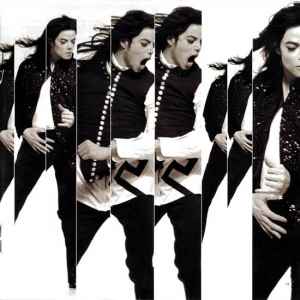Michael Jackson’s XSCAPE: Why the Posthumous Album is Worth a Listen

Michael Jackson has been dead for five years now yet the legend is still at the forefront of the musical scene. The ‘King of Pop’ franchise keeps selling millions of albums across the world, and among the classic Thriller or Bad a new album has managed to reach the top of 32 Charts in 28 countries. Xscape (Epic Records and MJJ Music) has been on the market since last May and opinions still diverge. Is it worth listening to the new album of a dead artist? The first posthumous album MICHAEL was a real disappointment, why bother with this one? Everyone knows Michael Jackson’s songs. So is it worth listening to modernized versions of unfinished tracks, when we can always listen to the intoxicating Billie Jean or the impassioned The Way You Make Me Feel?
The answer is YES; it is definitely worth it. Though it is not Michael’s finest work and the music has been transformed by new producers, some of the songs are real pearls that had been hidden for many years and that have received a new lease of life in this album. And you get to listen to Michael’s voice again, as pure and strong and beautiful as the Off the Wall period, but on new material. Fans discover unreleased songs that have been modernised but are still faithful to Michael Jackson’s style, which makes the album instantly better than the very controversial MICHAEL. There was a lot of work done on this album and the quality is excellent though people might not like the new versions of the songs, but that is a matter of personal taste. No, the reservations are not about the quality of the content but the whole process and its morality. Would Michael Jackson be happy about it being released? How can you deal with the art of someone who has died therefore cannot work on his own songs? Is it acceptable to use his name as a commercial tool and play with the fans’ nostalgia to increase sales?
I. The Production Process
1. The Release of Unknown Material

There was a considerable amount of work put on this album. Michael Jackson used to record 70 tracks for an album of 10 songs and he was not afraid of getting rid of anything that did not satisfy him. L.A. Reid, Chairman of Epic Records, went through 40 years of archives and recordings that did not make the final cut. He then enlisted the cream of the crop in the world of producers like Stargate (Beyoncé, Rihanna), Rodney Jerkins (Black Eyed Peas, Lady Gaga), Jerome ‘Jroc’ Harmon (Jamie Foxx, Jay-Z, Shakira) and John McClain (who worked on This is It), all under the supervision of Timbaland (Justin Timberlake).
Reid chose 8 tracks and asked his team to modernise them while keeping the essence of Michael’s style. The Deluxe edition of the album features Michael’s original recordings which are very interesting to compare with the new versions. Some of these recordings were made in the 1980s! The production plays on the nostalgia tone of the LP while trying to recreate that unique mix of pop, soul and disco which was Michael’s and Quincy Jones’s print. Reid wanted to stay as close as possible to Michael Jackson’s way of working even in the naming process. The title song ‘Xscape’ was recorded in 2001 for Invincible but was not included in the final track listing. Reid stated:
He always chose a song from the album to name his projects and, beginning with Thriller, used only one word titles, each with an edgy quality to them (Thriller, Bad, Dangerous, HIStory and Invincible). This is true of the new project.
Everything in this album evokes an MJ album, from the choice of the title to its cover. The style is supposed to be as close as what Michael would have done but what really makes the album a proper MJ work is the sound of his voice left completely untouched (unlike MICHAEL).
2. The Voice
Michael’s voice has changed over time. With the Jackson 5, people fell for the purity of his tones and the richness of his high notes. At puberty, the artist revealed in his autobiography Moonwalk that he was often made fun of and fans did not recognise his voice. Yet it evolved and became fiercer throughout the albums. Off The Wall is the beginning of his experimentations with a disco voice, still soft but trying to gain more weight. In Thriller, the voice is stronger with harsher sounds and a new energy develops which makes the tracks sharper and more vibrant. In Bad, his voice is a lot more violent and rough which corresponds to the style of the album and to the cruder lyrics. He will keep developing this style in the next albums before taking a break from recording between 2001 and 2009. In This Is It, his voice is much more fragile and we hear him (and see him in the film) struggle to get the sound of his earlier hits right. In the last posthumous album, producers did not hesitate to transform the pitch of his voice to match the music which created a huge polemic and angered fans around the world. Even after his death, the singer’s image had been tarnished once more and this time beyond his personal life and extravaganza: it damaged his talent as an artist.
When working on Xscape, the producers were very aware of all those dangers and past controversies. They had to convince the fans and stay true to Michael Jackson’s work. They could easily have fallen into voice transformation, inappropriate music style or redundant sounds. They could have lost the spirit of Michael Jackson’s music easily. Well, they did not. The result puts Jackson’s vocal abilities at the forefront of the album and the songs stay memorable thanks to the swoops, grunts and shouts of Michael’s voice. At last we hear the singer’s voice at its best on new material. We rediscover the smooth trance and the pained toughness of his voice when he is overcome by emotion, or when he breaks free from restraints and sings about something that revolts him or touches him personally. It is as if we had traveled back in time except the music is modern and the tracks unknown. Could we really ask for more? Finding Michael again. This is probably the best reason why you should listen to this album.
3. The Music

Leaving the voice on the recordings intact, Timbaland’s team worked on the musical accompaniment that would best fit with The King of Pop’s intentions. Yet Reid insisted on the modernization of the tracks while keeping Michael’s groovy pop/disco touch. Hearing the single Love Never Felt So Good with Justin Timberlake, we can say they have achieved it. Full of energy, listening to the song makes you happy and you want to dance and sing at the top of your voice just like when you listen to Don’t Stop Till You Get Enough, Black or White or You Rock My World. Listening to the original recording, the song is much softer and slower which instantly makes it more romantic and ballad-like. So Timbaland’s team has achieved to give a new bounce to Michael’s unfinished tracks. Some songs sound far better after their modification like Chicago, Xscape and Blue Gangsta. They sound clean and get a new peppy rhythm that recalls the Dangerous era. On these three songs, Michael’s voice is very powerful and the music only highlights the fierce strength of his vocals.
Yet it lacks that little touch that was all Michael’s. Under his supervision, the songs might have become as big as Billie Jean or Thriller. Some also lose their authenticity and when you listen to the original recording it seems like the new version is far from what Jackson aimed for in the first place. This is true of A Place With No Name a tribute to A Horse With No Name by America. In the original recording, the song is a ballad only supported by a few chords on the guitar just like America’s original title. In the new version, the beat is more electronic-like and very repetitive but it is also VERY close to the music in Leave Me Alone…not very original and quite tedious. An unequal result then but mostly positive and full of spicy rhythms.
II. A Closer Look at Each Song
Love Never Felt So Good was written by Jackson and Canadian singer Paul Anka. It was recorded in 1983 as a demo with Anka which only featured Michael’s vocals, handclaps and a piano. It was also recorded by American entertainer Johnny Mathis in 1984 on his album A Special Part of Me with a much more disco tone to it and different lyrics. In 2006, Michael’s demo leaked online and fans became a little more familiar with the song. During XScape, the song was revised and given a disco-sounding beat. The first version only features Michael and was produced by John McClain and Girorgio Tuinfort, whereas the second version was co-produced by Timbaland and Jerome J-Roc Hamon and featured Justin Timberlake in duet vocals with Jackson. Timbaland used the percussion and breaths from Workin’ Day and Night (1979). The result is a jaunty love song full of peps in the tradition of P.Y.T (Pretty Young Things) and The Way You Make Me Feel. At the beginning we hear a sweep of strings followed by the drums and then the bass kicks in, in a very disco-like fashion. A sound that Pharrell or Bruno Mars have taken to the top of the charts recently. The song is simple, direct and fresh, the sort of Jackson song you thought you would never hear again.
Chicago was originally recorded in 1999 for Invincible under the name ‘She Was Lovin’ Me’ but did not make the final cut. Timbaland and J-Roc worked together and gave this dark hip-hop ballad a new feel. The theme and the voice recall Who Is It or Dirty Diana. In the original recording the tune is smoother, slower and though the vocals are fabulous the rhythm lacks liveliness. The new version keeps the heartbreaking tone of the original version yet it adds a bouncier rhythm to it with the haunting bass and the explosion of the music at the chorus, echoing the explosion of Michael’s tenor voice. At the 3:20 mark, the drums fall silent and the vocals and finger snaps take over in a moment of pure voluptuousness.
Loving You is another straightforward love song in the tradition of The Way You Love Me, I Can’t Help It, Fly Away or Human Nature. Loving You is as sweet and airy as all of these songs. It is much softer than the bouncy Love Never Felt So Good and the piano gives it a romantic heavenly tone. It was recorded during the Bad sessions in 1985-1987 as a summer ballad about Michael retrieving from the outside world and enjoying a nice stay-at-home moment with his lover. The engineer Matt Froger stated:
“It was a good song, just not in serious consideration for the BAD album. One of many that were recorded and put away.
The original version featured a wonderful synthesizer introduction that Timbaland replaced with a piano solo. He kept the bass line but amplified it and added more drums to give a soulful hip-hop tone to the song, reminiscent of Motown.
A Place With No Name was written and recorded in 1998 and is very similar to A Horse with No Name by the group America (1972). 24 seconds of the song was leaked online three weeks after Jackson’s death and at the time, America said they were honoured that Michael had chosen to sample their work. The original recording shows Michael’s desire to keep the song simple and ballad-like with only a bit of guitar and background vocals, very close to America’s original song. Yet the 2014 version is very different and a little disappointing. Although the beat is bouncy and the beginning quite catchy, it rapidly loses its energy and becomes redundant and soulless. Plus the bass/drum line is practically the same as Leave Me Alone which displays a complete lack of originality from the producers StarGate.
Slave To The Rhythm is the cherry on the top of the cake. It was recorded during the Invincible sessions in 1998. A few versions of the songs leaked on the web including the duet vocals with Justin Bieber but the Michael Jackson Estate did not authorise the release of this recording and attempted to remove this version of the song from as many sites and YouTube channels as possible. Slave to The Rhythm tells the story of a woman who is forced to dance for men all her life, at home and at work. The fastening of the pace, the network of keyboards and maddened drums and the addition of electronic sounds in the new version gives fierceness to the original track. The music echoes the sense of revolt in Michael’s voice who denounces the abuses of society on the individual and the power relations between men and women. It has the same energy as Beat it, Bad or Billie Jean, the same feeling of disgust in the face of injustice. The rhythms are harsh, the beat is heavy and made for dancing. This is the ‘hit’ that we were waiting for, the latest dancing tune after You Rock My World in 2001.
Do You Know Where Your Children Are was first recorded for the Bad album then revived for Dangerous. This is one of Michel’s message songs like They Don’t Really Care About Us or Earth Song. It tells the story of a 12 year old girl who runs away from sexual abuse and lands on the streets of LA, forced to become a prostitute and blinded by the Hollywood dream. Timbaland’s hypnotic keyboard riffs are at the core of the song and gives a little Pink Floyd touch to the track. Jackson’s vibrant vocals along with the sharp beats shows again a sense of rebellion and anger at our messy world.
Blue Gangsta can easily be related to Smooth Criminal. Both songs are about gangsters, a theme Michael often chose for his dance routines and video clips like You Rock My World. The hat, the suit, the tie, the anti-gravity lean… these became Michael’s signature. Blue Gangsta continues in that tradition and at its release, dancers from Michael Jackson The Immortal World Tour celebrated the release of Xscape with a music video choreographed on this single and inspired by the Smooth Criminal video. The song was originally recorded in 1998 for Invincible and was leaked between 2006 and 2010. In the original, the piano offers a bass line completed with a few drum beats, background vocals, an accordion accompaniment (yes, unusual but very nice!) and sometimes trumpets but the music is very simple, repetitive and only offers a support to Jackson’s breathy voice. Timbaland’s version features a skittering beat and an eerie multi-tracked chorus with finger snaps and handclaps. The introduction features a threatening movie-like wash of strings followed by the urgent refrain “What cha gonna do/You ain’t the friend of mine/Look what you put me through/Now that I’m the blue gangsta’ before Michael’s smooth voice kicks in. It then explodes in a screaming soul and the electronic synth-bass and trap drums break loose. The accordion has been removed and replaced by a piano but the devilish trumpets remained. Again Timbaland captured the song’s essence and succeeded in developing the right tone to it: dark, hurt, threatening and haunting. The music is not just a support for Michal’s voice anymore, it exists in itself.
Xscape is a personal favourite. Rodney Jerkins produced the original version during the Invincible sessions and the remake version which became the title track of the 2014 album. This song reminds the fans of Scream, Leave Me Alone, Why You Wanna Trip On Me, 2 Bad or Tabloid Junkie. In the original, we hear background noises of a prison and dialogue. Then the beat kicks in and tension builds up until a new beat comes in very Jam like. Police sirens and then Michael starts to sing about his longing for freedom in his tenor voice before he explodes in the higher notes. The vocals come in on the chorus backed up by the same repetitive music. The beat becomes redundant and the music lacks a clean, vivid and dynamic sound. However, the new version is far more bouncy and energetic than the first one. It starts off with Michael beat boxing before the beat kicks in and merges with Michael’s breaths and shouts. He then starts to sing and violins burst in from time to time to add tension. Then Michael’s voice becomes more aggressive and is backed up by a great ensemble of trumpets and winds. There is a small break in the music which puts Michael’s voice in the spotlight and then the chorus happens – a very well orchestrated web of drums, electronic beats, strings and catchy trumpet phrases. A real explosion of sounds and senses that invites the listeners to dance and free themselves from constraints.
III. Critical Reception
In general, Xscape received far better critiques compared to the first posthumous album Michael yet it was not held as a pure triumph. The reviews were generally mixed. It scored 60 out of 100 on Metacritic which was based on 22 critics around the world. Below are some of the most notable critiques:
Jackson’s music mixed celebration and terror, as if he was unable to find, or maintain, the division between the two. His music offered a place to both explore and escape those tensions. On this album, it does again.
The Billboard
Timbaland and Reid evoke the Michael Jackson we all love and miss, finding songs that are worthy and giving them arrangements that are simultaneously nostalgic and modern. It’s a difficult trick to pull off but they largely succeed, so XSCAPE is a worthy and memorable coda to Jackson’s career. All Music Guide
Although rejected by the singer in his lifetime, this is pop, not high art, and it has been handled with considerable care, giving us a glimpse, however illusory, of what this extraordinary talent might actually sound like had he lived. The Telegraph
There’s nothing here to quite match his finest moments, but nothing stinks and that, I suppose, is the best you can expect. The Independent on Sunday
It has just eight short songs, and the material isn’t about to eclipse “Thriller.” But it does a service by adding worthy songs to Jackson’s canon. Even better, it makes him sound, once again, alive. New York Daily News.
Even with such dark subject matter, though, it’s a joy to hear the joy in Jackson’s voice. Rolling Stone
This album was more impressive than expected. BBC
IV. Commercial Reception

Commercially, the album was a success and made a lot of money. Xscape became Jackson’s tenth UK number-one album with 47.764 first-week sales. Currently, they stand at 135.000 copies and the British Phonographic Industry certified the album gold. It has also debuted number one in Belgium, France, Denmark and Spain. It became number-two on the US Billboard charts with first-week sales of 157.000 copies in the United States. The second week, the album sold 67.000 more copies and 35.000 the third week bringing its total sales to 259.000 copies. After fourteen weeks of release, the album had sold 406.964 copies. In Canada, it debuted at number three on the Canadian Albums Chart selling 12.000 copies. Following the success of the main single Love Never Felt So Good, Jackson became the first solo artist to have a single reach the top 10 in five different decades. Either alive or dead, Michael Jackson is synonym of money and his name instantly means commercial success.
V. Moral Question and Artistic Rights
Although the album is a commercial success and in general excellent quality music, it is important to think about the whole process in itself and this instantly brings up reservations and controversies. How can you work on someone else’s songs without his consent or opinion? Can you exploit his name and with what purpose? Financial? As a tribute? For fame? Of course the process is not new and often albums are re-released and remastered but in that case the songs are not new. Here, the material is completely new as Jackson has left them unfinished. So how can producers work on his songs without his say?
1. The Appeal of Money
Five years after Michael Jackson’s death, he remains a ‘product’ extremely profitable. Forbes magazine stated that last year, Jackson was the celebrity who ‘gained’ the most money worldwide after his death. His heirs obtained 160 million dollars in 2013 (145 in 2012 and 170 in 2011) from the two Cirque du Soleil shows dedicated to the King of Pop. Michael’s music still sells thousands of copies, and shows like the Michael Jackson The Immortal World Tour are very remunerative too. But is it right to exploit someone’s reputation, work and art even after his death to gain money? Sony signed a contract of 200 million dollars to release seven new albums in the space of 10 years mixing new materials and republications but this is not only to honour Michael Jackson’s legacy and please the fans. Quincy Jones, Jackson’s long time producer and collaborator said that they were trying to make more money and that was their only purpose. Disappointed by the final product, Jones certified that he had nothing to do with Xscape. Fans have mixed opinions too: on one hand, everyone is pleased to hear new material and listen to Michael’s angelical voice again. On the other hand, many do not approve of using his name and art after his death. Michael was, is and will always be regarded as the goose that lays the golden egg by the music business and this is hard to accept on a moral scale.
2. What about Artistic Right?

Another element that wastes our pleasure is the fact that none of these songs were actually approved by Michael. As the BBC poses the question ‘if they weren’t good enough for release back then, why are they now’? Jackson specifically chose not to show these songs to the public. How would he have reacted to other people working on his unfinished tracks that willingly kept in the dark? And how could Timbaland’s team work on Jackson’s legacy without his say on his own work? That is why fans felt like this album was not Michael’s work and lacked Jackson’s touch. The original recordings are sometimes very different from the final versions and we cannot help but think that although they were less polished, they were certainly closer to Michael’s vision and to what he was looking for. They could have been very different had he lived and finished them. Is this a way for the music business and the producers to claim ownership over Michael’s music? Is it really just to revive the Jackson flame and add to his legacy? Or is it again a question of making money? Probably a bit of everything. Thus the posthumous album raised concerns and reservations not specifically on its quality but more on the morality of the process. Just like the hologram of Michael Jackson singing Slave To The Rhythm on stage – as if he was there for real – shows how the industry is not afraid to defy the rules of nature and raise Michael Jackson above mortality.
Xscape shows that there is no end to the King of Pop’s reign. Michael’s music continues to be celebrated worldwide and the album is definitely worth a listen in terms of its quality and the energy it transmits. Although we may question the morality of its release and suspect that it is not always close to what Michael would have done, the songs stand for themselves and seem pretty close to old Jackson hits. And this is not the last posthumous album: true aficionados and greedy businessmen may rejoice as many more treasures are yet to be revealed and, of course, even more money is to be made.
Rating:
What do you think? Leave a comment.











It’s easily my favorite album of his since Bad. I actually think he made a mistake by not letting Rodney and Timba release these songs before. Michael was blocking his own continued success and these new tracks are proof of what couldve been if he let go a little. These new versions sound far and away better than their demos.
The single’s fantastic, the rest is complete waste.
Personally I think there are other songs, such as Chicago and Loving You, which are good.
Stranger in Moscow, the last great Jacko vocal performance in my opinion.
His later stuff had the emotion for sure. No-one can sing emotion like him.
SiM is one of those you just have to hit the pause button for…You may have to zone out a bit too. Got Tuesday afternoon written all over it.
Vocals oh yeah, theres no xscaping the art of the Jacko anguish here.
Whilst being just a casual fan of his, I must say that the documentary about MJ’s rehearsals in London 5 years ago prove that even at 50 he was and incredible talent, and those shows would have been some of the most incredible ever. That said, I won’t be buying this album. Stick with OTW, Thriller and Bad – three gold-standard classics.
You’re missing out on some of his greatest most relevant work if you “stick” with those three or stop at Bad. Seriously.
It’s weird his stuff still gets played on the radio and some other people’s don’t…
In my opinion michael jackson as a solo performer peak from 1978 until thriller
from then on is music and the man himself seemed to fall apart
Yeah, right. Pretty astonishing that the guy who “fell apart” as of 1978 still managed to sell more records worldwide than anyone besides a band (The Beatles…but he’s catching up), and to log himself among the dance, song, songwriting, and film greats.
The Michael Jackson we see in the Spike Lee directed Bad 25 documentary would never have approved. The Michael Jackson we hear on the Thriller home demo tracks would never have approved. The Michael Jackson who had his audience in the palm of his hand, at Wembley in 1988, would never have approved. Michael Jackson was a musical genius. His character was flawed and his reputation and image greatly damaged in his later years. But on his day he was one of the greatest entertainers. Michael Jackson. A one off.
I greatly enjoy your in depth take on the album. I was wondering where the music came from and you did an excellent job delivering! Thank you!
Thank you Jemarc! I’m glad you enjoyed it 🙂
Lovely article! I really enjoyed it and the videos you embedded are great!
Thanks, glad you liked it 🙂
I would like to hear an album of more recent recordings produced in a way that befits a man of his (then) age. MJ ceased to be ‘relevant’ or ‘cutting edge’ some time after the release of Thriller (or, if you are being kind, around the time of Dangerous). Sony – stop trying to make money out of old rope, and show us something genuinelty new and/or interesting.
You’re reading, listening, commenting. You’re interested!
His only truly great album was ‘Off the Wall’.
Pretty much everything after that was over produced crap.
MJ would never have approved this album, all of these tracks are unfinished – music direction is so crappy in this one.
Need to give the whole album a listen, found myself inexplicably loving Love Never Felt So Good. Perhaps because I first heard it on a gloriously sunny day and it just felt so perfect, but maybe because it’s taking something familiar and something new and putting them together to make something far more intriguing.
His legacy is irretrievably marred by scandal and weirdness.
nonsense
My take on this new album is it’s definitely fantastic! What Michael Jackson may have considered “rejects” are actually pure solid gold songs – way, way better than the music we have now by living artists.
The new songs also showcase what a great vocalist MJ was.
The Michael Album had some great songs on it. Behind The Mask and Much Too Soon ranks among his best work. As for the This Is It rehearsals, it was just that rehearsals. MJ himself said that he was saving his voice for the real deal. He did NOT “take a break” from recording between 2001 and 2009. In fact, he recorded non-stop in each and every single year in that period, including during the sideshow of a trial. MJ could very much still sing (and dance) his heart out, just like in the glory days. Nothing has damaged his talent as an artist. Only biased “critics” have tried to do that, through smear-campaigns and ridicule.
Because something sounds similar, doesn’t make it “unoriginal.” Billie Jean and Who Is It has a similar sonic feel, but does that make Who Is It a poor track? No. I think the new version of A Place With No Name is one of the strongest songs on the Album, superior to Slave To The Rhythm for example, which I feel was interesting, but lacking catchiness. As for your comment of pop not being high art, I agree with you in general, but when it comes to Michael, pop was very much a high art. MJ was as much an artist as an entertainer, and the latter doesn’t detract from the former.
As for the “moral issue,” I am convinced that Michael would have wanted what McClain and Branca are doing with his legacy, including putting out new, polished recordings of his. Just because he didn’t release material doesn’t mean he felt it was inferior. Remember, MJ never put vocals on songs that he felt were beneath his standards. There are numerous examples of MJ tucking away songs, then later bringing it up. Wanna Be Startin Somethin and Earth Song are but two examples. Finally, MJ himself made money off of dead celebrities himself, including John Lennon, which music he made money off through commercial. So the idea that this was far from who Michael was, is way off. MJ was a businessman in every sense of the word. That is one of the reasons why he took advantage of a nickname he deservedly bestowed, The King Of Pop.
I agree with you, and sorry for the mistake about the break in recording. I meant he didn’t release any new album during that time. My mistake :s
And of course it depends on everyone’s personal tastes. I didn’t really like A Place with No Name but that’s my viewpoint and I’m glad some people disagree.
I hope he would have like it but knowing he was a perfectionist and that all of these songs he did not consider releasing (at least for a while) is not totally convincing
Money, morality and artistic rights?
Ms. Boutin are you willing to use these same arguments in relation to other rock era legends? Haven’t Brian May and Roger Taylor of Queen been just as guilty of reaping millions off of Freddie Mercury? Or Page, Plant and John Paul Jones (of Led Zepplin), haven’t they immorally accepted the enormous revenue from the sound that John Bonham created? What of the artistic rights of the music of John Lennon that Paul McCartney, Ringo Starr and Yoko Ono have violated? No, those artists are held in higher esteem by digital media pundits, and as a result never have to undergo this endless microscopic scrutiny of their personal life and legacy they’ve left to others to advance. While these unreleased songs won’t ever be considered among his finest works, what they represent to his fans, we who were blessed to observe him for parts of 5 decades, is further resounding evidence of his genius, talent, and humanity. MJ Is Still The King.
I completely agree with your comment, Off The Wall 1979 and may I add, isn’t it exactly what I describe in this article? I didn’t go further of course and focused on Michael Jackson because we we’re talking about his latest posthumous album but I never said this was a unique process, or a new phenomenon. It happens to all famous dead artists because the music industry is greedy, like any other businesses. And it is true that Michael Jackson had always been attacked on personal and professional levels by the media, like those you have cited too but probably less than MJ. Plus the major difference is that those you have cited above were part of a group, they were all involved in the making of the music and had a say on those songs, and still create the new ones themselves. That does not justify their greedy schemes of course. But MJ had absolutely no say on the release of these new songs. I don’t say it was bad to release them on a fan’s perspective because I personally love these songs and I’m glad new tracks of MJ are being shown to the world. But I think that the fan should also question the morality of the process, the ‘behind the scenes’ if you want. So that’s why I added this section about money, morality and artistic rights.
By the way, my surname is Bitoun. No offense taken 🙂
Listening to it now. It sounds fresh and familiar at the some time. Some great production to back up that unique voice. Enjoying it.
The public’s expectations on MJ is scarily high – we measure his work against his own accomplishments. That must be the price he has had faced for setting the bar so high (to the point of breaking it).
I see a lot of haters of him. However, Michael Jackson made more money last year than any dead or living entertainer. Moreover, Michael Jackson is the only artist to have sang on a top 20 hit from the 60’s (I want you back) the 70’s, the 80’s, the 90’s,00′ (Butterflies) and now the 10’s.
That is just on example of the results of one of the greatest artist in music history.To me there is three greats Elvis, The Beatles, and Michael Jackson.
I defintiely agree with that (The Beatles and MJ being my favourite artists of all time haha)
this album is shitty. I got it and listened to it 3 times. best songs are loving never felt so good (og and solo version) loving you, chicago. timbaland did a lackluster job on the beats. they shouldve had quincy jones or pharrell produce the next one.
Just listened to my copy of the album and it’s excellent.
I particularly liked ‘Love Never Felt So Good’, ‘A Place With No NAme’, ‘Xscape’, and ‘Loving You’.
Michael Jackson was a musical genius.
The pop genius is back!
Most people that I know were not too enthused about the album once they heard it. For me, it seemed to miss Michael’s final touches. I wouldn’t argue that I am a fervent student of Michael Jackson’s specific musical techniques, but I can say that I am a huge fan (like most other people in the world) and I can tell that some of the songs would have been better with Michael’s finishing touches.
I have never met a person who didn’t “get” what MJ was about. His songs always bring back good memories of past times and a sense of welcomed nostalgia. I have listened to this album briefly and I have to say that I am not a big fan of the new, updated and modernized feel of the songs. Its not how, personally, completwly authentic to MJ. The one I did enjoy was Xscape, but only because it reminded me of past songs. Definitely worth listening too but not something I would necessarily put time into.
Ich finde es großartig das immer wieder neue Album kommen und das wir auch mal neues unbekanntes von MJ hören ich hoffe nur das die Kinder von MJ auch Geld krigen dann ist es ein guter Zweck wen die Plattenfirma nicht alles für sich ein steckt
Really great piece. I’m glad you covered all of the facets of the album (making of, morality of, quality of, etc.) So great job on that! I enjoy the album, but it save for Michael may be the weakest effort with the name Michael Jackson. Worthy of some spins? Absolutely. Will it be anyone’s favorite? I highly, highly doubt it. One thing I’d like to add as well is I hate purists who swear by Thriller and Bad (and sometimes but not always Off The Wall), but discount Dangerous, HIStory, and Invincible. I’m sorry, but are you kidding me? His latter albums are FAN-TAST-IC. Full of charisma, spunk, character, energy, flair, and style. All just awesome. Anyone who talks trash about them probably listened to them already thinking they were bad because they were not the former three albums. Anyway, I’d suggest XScape to any fans that have worn out the past catalog and are looking for something new. If you have not spun all of his actual 6 adult solo albums yet, I say you must get them all first and devour them first. Those are Michael’s complete visions and expressions directly finished by him. XScape, while enjoyable, is not. That’s just the fact of the matter. Michael’s actual albums are more important, and better.
Wow, very well written. Rare to find a review that doesn’t sound like an armchair psychologist trying to analyse MJ and focuses on the music.
Michael Jackson seemed if nothing else very committed to a large amount of work.